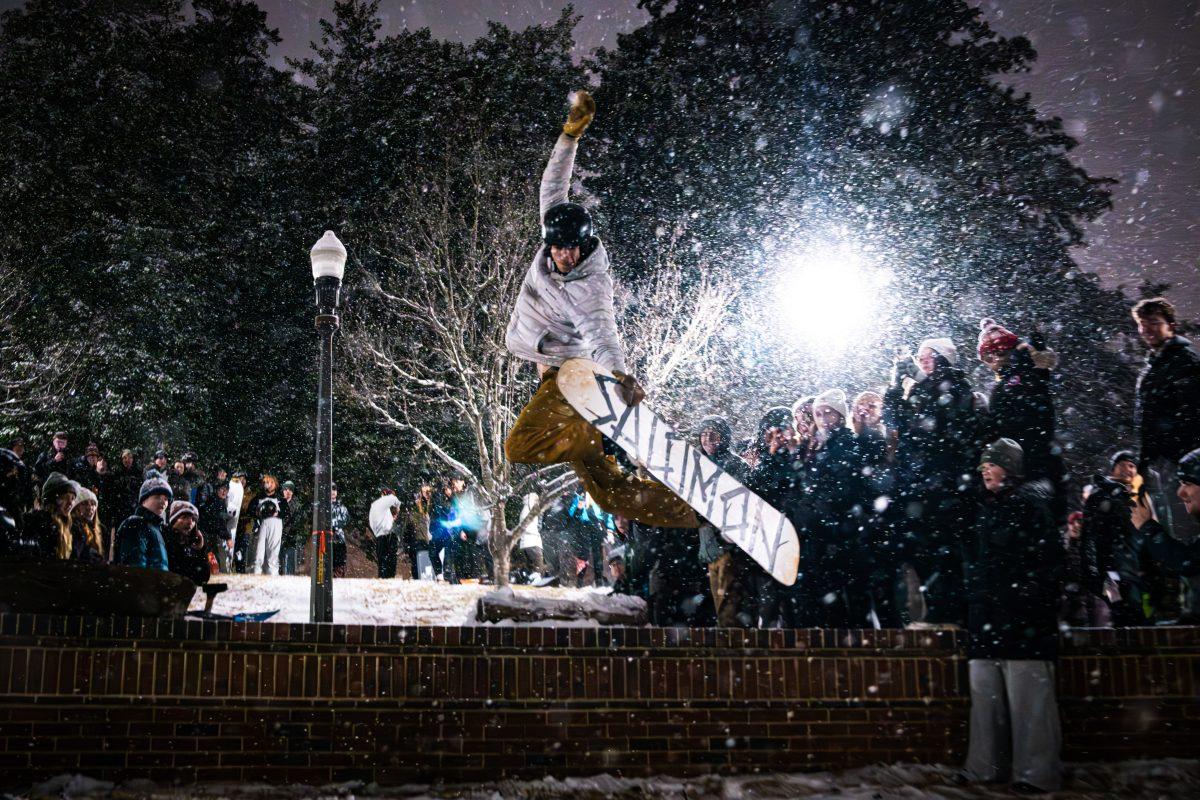Two weeks ago, treasured weatherman-groundhog Punxsutawney Phil announced the winter season will continue for another six weeks.
Whether this news lifted your spirits with hopes of more snow days or cast you further down a depression spiral — or if you even take the word of a groundhog as gospel — one thing is certain: Wintertime affects wellness in complex ways. With at least six more weeks of cold ahead, it’s worth taking more seriously.
Winter weather can pose logistical challenges to typical self-care strategies, like outdoor activities and socializing with friends.
“I think when it’s warmer outside, it’s easier to be like, ‘Hey, you want to go outside and do something, like go do an active sport like pickleball or something,’ and then when it’s cold outside, you’re a lot more limited as to what you could do,” said Madeline Wall, a second-year studying electrical engineering and computer engineering.
Coco Wang, a second-year studying business administration, said maintaining a social life is more difficult during the winter and can lead to feelings of isolation.
“I definitely feel a little more lonely,” Wang said. “Obviously, during the summertime, being out is the norm. People want to make plans, but when it gets a little colder, it’s harder to keep up with your friends.”
That said, the winter season does provide other opportunities for wellness, like cozy, indoor self-care activities.
“I think when it’s cold out, my favorite thing to do is have a hot drink, like hot tea and then watch a movie or do an indoor hobby, like reading,” Wang said.
Wintertime also brings with it the holiday season, which calls for family gatherings and celebrations with friends. These holiday events, unlike regular or spontaneous plans, often hold more weight and are more likely to “make it out of the group chat,” as they say.
For example, think about trying to plan a movie night with your friend group versus organizing a Galentine’s party or a Friendsgiving potluck. You’d likely have far more luck organizing the latter rather than the former because holidays naturally incentivize socializing. Capitalizing on these events is another great way to practice winter wellness.
However you practice wellness though, mindset and consistency is key. Self-care and wellness are better-suited as a lifestyle or habit instead of as random, one-time attempts. Eleanor Saunders, a fourth-year studying communication, said self-awareness is especially critical to having a positive wellness mindset.
“When it comes to wellness, you have to also know who you are and who you want to be in order to be happy per se, and that can be hard learning who you want to be as college students,” Saunders said. “The closer you get to your purpose, the happier you will be.”
Saunders said serving Jesus Christ was her purpose and making a few changes, like partying less and listening to gospel music, was integral to practicing wellness with purpose.
Maintaining consistency also means finding alternatives to self-care activities that might be inaccessible during the winter. For example, instead of outdoor recreation, you can try prioritizing indoor exercise and indulging in snowball fights like Wall.
Regardless of whatever you decide to do for wellness this winter, remember that it doesn’t have to be complicated — it just has to be intentional.














